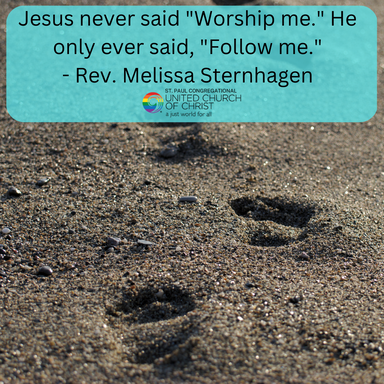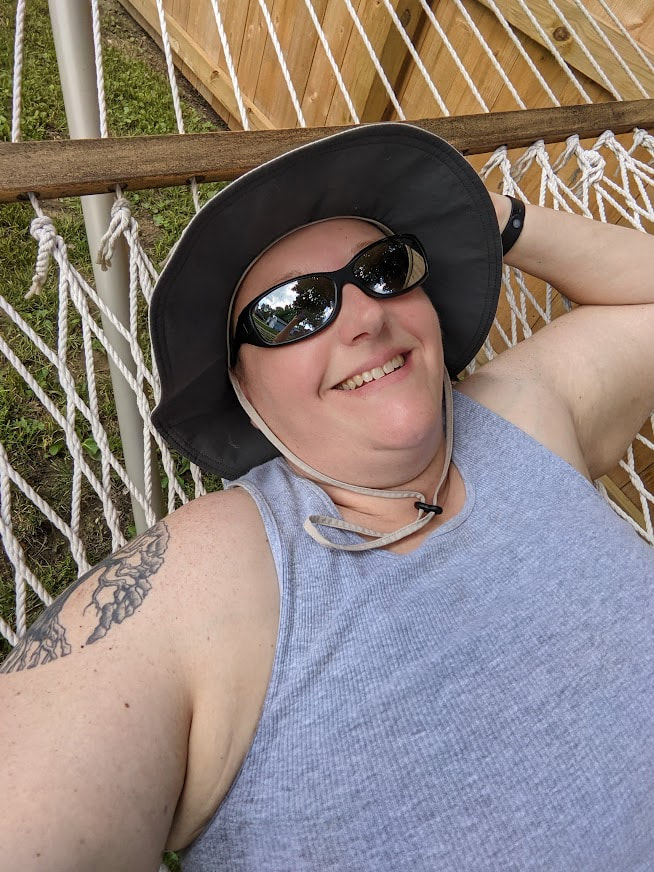 If you have been to an in-person worship service at St. Paul since Ash Wednesday, you will notice that our time for a centering breath is now concluded with the tri-fold ring of a singing bowl. The questions you might be asking yourself are, "Why are we doing this?" and "Is it okay for Christians to do this?" To get to those answers, allow me to share a brief history of the singing bowl. Singing bowls or singing bells or a standing bell (as they are called in different parts of the world) have a bit of an unknown past. Some say they are over 5000 years old and come from the land once known as Mesopotamia (located in the Fertile Crescent, land in and between the Tigris and Euphrates rivers usually known as modern day Iraq and Eastern Syria), while others say they are only 1000 years old and come from Persia (modern day Iran). Others claim Tibet and India and China all as birth places of the singing bowl. Musicians will understand singing bowls as idiophones, or instruments that create sound through vibration. In fact, the vibration of a singing bowl has been shown to actually be able to rearrange water molecules. Because of this, they are thought to have an effect on the human body (made of over 60% water), having a calming and peaceful affect that helps a person come back to center. According to Ruah Space, "The use of bells in worship goes back all the way to the book of Exodus when the high priest Aaron was instructed to wear bells on his robe so that their sound could be heard every time he entered the Holy Place before the LORD (Exodus 28:33-35). Then, bells began being used in the Christian church sometime in the 5th century when Paulinus of Nola introduced them into the church." In fact, bells and chimes have been used by the Church for centuries to begin worship, call people to a time of prayer, and remind people to take a minute and return to God’s presence. In other words, these standing bells--these singing bowls--are linked to areas we hear about in our sacred text and they are, at the very least, relatives of the bells referenced in our sacred text. Despite the mythology, singing bowls didn’t begin as a Buddhist or Hindu religious instrument, but rather as a means for everyday household needs, storing grains, or use as currency. One form of them or another have, however, evolved to be used as a meaningful part of prayer and meditation in Buddhism, Hinduism, Judaism, and Christianity. So when you hear the singing bowl ring out this Sunday, let the vibration help bring you back to center and a new assurance that God is, indeed, near. Pr. Melissa Probably one of my most favorite things about being a pastor is getting to be a collector of stories. The pastoral office affords me entrance into the stories of others in times of grief, loss, pain, jubilant celebration, joy, and everywhere in between. I get to listen. I get to absorb. I get to reflect. I get to hold tightly. I get to hold loosely. I get to collect these stories in my mind, in my heart, in the very center of my being.
As a collector of stories, I am often acutely aware of the stories being told around me. I'm not just talking about the stories we swap during Fellowship Time or during a Bible Study. I'm talking about the stories being told around all of us. The stories in which our personal stories exist. We, dear people, are being told a story. By politicians, by media outlets, by social media feeds, by churches, by pastors, by friends and family and enemies alike. Our job is not to take these stories at face value as gospel truth. Nor is our job to outrightly reject them. Our job is to take in the information from the stories being told around us and to question them. To ponder them. To seek to understand them. Author and poet Wendell Berry once wrote, “The significance—and ultimately the quality—of the work we do is determined by our understanding of the story in which we are taking part.” Understanding is the goal, not mere acceptance. Understanding is not the end, it is the beginning. "We," Carrie Newcomer asserts, "decide the story we tell ourselves. We choose the story in which we take part." And as followers of the Way, we are called to choose to take part in stories of justice, inclusion, and love. We can understand that the stories politicians are telling us about "Concern for children," being at the heart of damaging anti-LGBTQ and anti-educator legislation are part of a larger agenda of control, indoctrination, and forcing one, narrow view of religion and the world on everyone. We can also understand that the "concern for children" of these same politicians somehow ends when it comes to feeding children with enough healthy food when these children are in households receiving state SNAP benefits. We can understand these stories despite the surfacey rhetoric and "Iowa Nice" explanations for why it's okay for young people to seemingly have easier access to guns than they do books, and why teachers should no longer be considered the experts in the room when it comes to structuring curriculums. We can understand these stories around us, but we DO NOT have to adopt them as our own. We can, and must, choose a more excellent way. When the stories being told around us marginalize and demonize entire groups of people, our work, our voices, our actions must tell a different story. We must tell a story of the inherent worth of ALL people by whom we choose to include. We must tell a story of justice by our marches and our advocacy work fighting for a just world for all of us. We must tell a story of wild, expansive, inclusive love by the ways we love and whom we love. In thought, word, and deed, we are called to choose to take part in a more liberative, inclusive, love-filled story rather than simply accepting the stories we have been handed. So, people of faith, let's tell a new story this week. Let's tell a story of love. Pr. Melissa  Sunday was an exciting day for Oskaloosa! Not the kind of exciting most of us would like, rather, the kind of exciting that upsets our usual routines and asks more of us than we are used to offering in the slow moments of Sunday morning. As many of you are aware, in the wee hours of this past Sunday morning, a large water main break left most of Oskaloosa without water--including the church building. As the morning went on and the severity of the situation became more clear, we made the decision to cancel worship and, instead, cobbled together what water we could and handed it out to our neighbors and friends. If someone needed water, we didn't want cost or not having a ride or the strength to go the store to get water to be prohibitive in having clean, safe water for drinking and basic human needs. Calls were made to congregants with offers to deliver water to those who needed it. One of us delivered water to those at home. Another of us stayed at the church to hand out water to those who came by. Parishioners who live out of town brought water in from outside of Oskaloosa and stayed to help hand some of it out. The small handful of folx who came to the church building unaware that worship had been cancelled for a water main break were gracious in their discovery, and offered concern, support, and understanding. Did we actually have to cancel worship services and all Sunday activities? No, we didn't. In fact, many churches chose this option with some modifications to their worship schedules and bathroom availability. But as I weighed the decision with other church leadership, I kept coming back to one thing I know to be true: Jesus never said "Worship me." He only over said, "Follow me." And we tried. On Sunday morning we tried to follow the Way of Jesus. By offering water to anyone in need. Without hoops. Without strings. Without discrimination. Without stopping to inquire first if they were worthy. Without asking first how they voted in the last election or whom they love. Without having to worship with us first. We called upon some of the most vulnerable among us and tended to a most basic need of all living things: Water. Clean, safe, water. By almost 11 AM - about the time we would have been getting done with our worship service, we ran out of water. We didn't try to scramble for more. By then we had heard Hy-Vee trucks were on the way to town. We simply offered what we could, how we could, when we could, trusting that just who we are and what we could offer was enough. It was, most definitely, an exciting Sunday, and one that I will not soon forget. It was a day when, for me at least, the gospel came alive--jumped off the page, ran through our hearts, and opened our arms to our neighbors in the most basic of ways: Water. Clean, safe, water...for ALL who were thirsty. Being church with you, Pr. Melissa |
Rev. Melissa Sternhagen
Rev. Melissa Sternhagen was called as the pastor of St. Paul Congregational UCC in June of 2020. Prior to her call to St. Paul, Pr. Melissa worked as a hospice chaplain in the Ames, IA area, following pastorates at rural churches in Central Iowa and Southern Illinois. Pr. Melissa is a second-career pastor with a background in agribusiness and production & supply operations. She received her M.Div. from Eden Theological Seminary in St. Louis, MO, and holds a MA Ed. in Adult Education and Training, and a BA in Organizational Communications. Archives
July 2024
Categories |

 RSS Feed
RSS Feed
